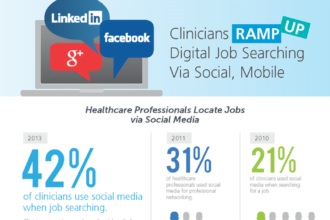Dr. William Osler, author of “The Principles and Practice of Medicine,” is quoted as saying, “It is much more important to know what sort of a patient has a disease than to know what kind of a disease a patient has.” Most of the healthcare industry still feels that way, as evidenced by a significant shift toward maximizing and incentivizing personalized, value-based treatment. In the struggle to get mental health diagnoses to fit within medical practice, behavioral health treatment has drifted away from the patient-centric philosophy that should guide all forms of medical care. Currently, addiction treatment focuses on diagnosis-centered treatment, which may be easy to track and reduce to statistics, but it’s a disservice to both patients and treatment centers. Patient-centered treatment is challenging the status quo of diagnosis-centered treatment by focusing on the patient rather than the diagnosis. It’s important to remember that the gallbladder in room 213 belongs to Mrs. Jones. And it’s no less important to remember that the alcoholic in bed 15 is also a whole person. Treating Patients Instead of Addictions Addiction treatment has focused primarily on treating different types of substance use rather than the patients who are using. Is alcoholism best treated with or without medications? Is it easier to help people with cocaine dependence in outpatient or inpatient settings? The addiction treatment field has centered on disease-based algorithms that don’t take the patient into account at all. Is acamprosate or naltrexone better for alcoholics? That’s the wrong question. The better question is “Which patient should be using acamprosate, and which patient will naltrexone work better for?” Fixed-length programs with set curricula for treatment disregard the unique needs of different patients. If everyone needed 28 days, then there would be no need to see what works best for different types of people. The American Society of Addiction Medicine’s new definition of addiction goes a long way toward laying the foundation for personalizing addiction treatment. According to ASAM, addiction is defined as a chronic illness of the brain, with substance use being only one of its many symptoms. As such, ASAM sees addiction as unitary and primary, which encourages providers to take factors such as the reward used as part of a bigger, more personal problem. While many in the addiction treatment field have not yet embraced the neurobiological model behind genetics, genetic testing has allowed medical treatment to be personalized on a DNA level for several years. It is amazing to see the change in doctors’ perspectives when they realize that one alcoholic is very different genetically from another with a similar history. Everyone Benefits From Patient-Centric Treatment The benefits of patient-centric treatment are numerous to both patients and treatment centers. With individualized options, patients receive better and more successful care. Instead of the same treatment program that everyone receives, patients get the specific treatment they need. People don’t want to sit through a treatment aimed at their next-door neighbor — they want their own care. Treatment centers feel the benefit as well. When everyone else is doing the same thing, the center that can honestly say it offers customized care will attract more business. In addition, insurance companies prefer to pay for high-quality personalized care because they know they’re getting the best value for their money. Changing how we think of and treat patients with addiction won’t spread across the field instantaneously. But the wheels are already in motion, and soon, the field will catch up with the gold standard of value-based healthcare. As Dr. Osler emphasized, treating patients, and not just illnesses, is the most important principle of modern medicine.






